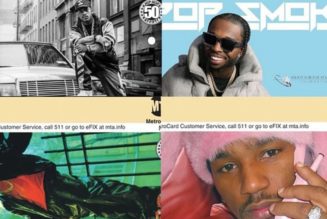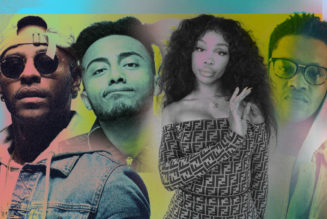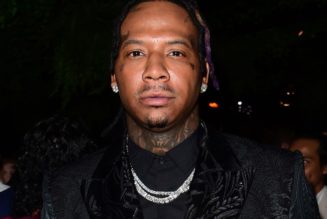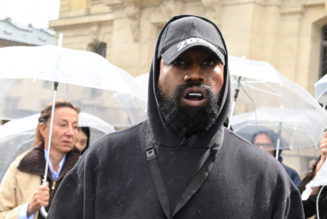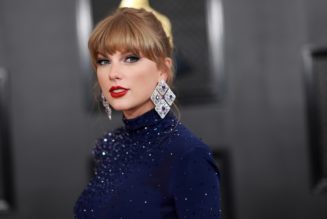In 2023, South African dance genre Amapiano hit more than 1.4 billion streams on Spotify. The genre’s influence on the music culture in South Africa and beyond has seen the world embrace the Amapiano frenzy from dance challenges to inspired collaborations, fusions and fashion.
This critical influence has led to the launch of A Decade of Amapiano, a site looking at the past decade of Amapiano and its different key influences, complemented by an on-platform Amapiano destination with pivotal playlists and podcasts for anyone wishing to learn more about the genre’s origins, sounds and future.
The Covid-19 pandemic proved to be a game-changing year for Amapiano’s growth on the platform. In 2020, the genre hit its first 100 million streams, followed by an impressive 300 million streams in 2021, further solidifying its rising popularity.
On June 14, 2024, Spotify launched A Decade of Amapiano in the lead up to South Africa’s commemoration of Youth Day. June 16 marked a turning point for the country’s youth and their quest for freedom and justice.
Read: African music rising on global charts, with help from TikTok
Today, they use Amapiano as a platform to amplify their voices, freely express their aspirations and showcase their resilience and creativity. In June 2023, Spotify launched Afrobeats: Journey of a billion streams, a website dedicated to celebrating the Afrobeats genre.
Originating from South African townships to the global stages, A Decade of Amapiano tracks the genre’s ascend to the music throne showcasing the journey and highlighting some of the genre’s key artistes.
Key Amapiano internal data by Spotify shows growth of over 345 percent in 2023 compared with 2014. The online service has so far registered over 855 million streams in 2024.
There was a growth of over 153 percent in exports in 2023, compared with 2014. It registered over 87 percent growth of female artistes in 2023 compared with 2022. And over 40 percent of listeners were between 18 and 24 years old.
A further 22 percent came from people aged 25 to 29. It hasn’t hurt that the biggest artistes in Amapiano are more or less the same age as their listeners. Genre pioneer Kabza De Small, for example, is only 31 years old.
“One of the most affirming parts of watching Amapiano explode over the past decade is seeing how people use it for self-expression,” says Phiona Okumu, Spotify’s head of music in Sub-Saharan Africa.
“The last time we saw a uniquely South African genre paint a clear picture of the state of South African groove culture was with Kwaito spearheaded by youth. What Amapiano has managed to bring with it from the ground up locally and eventually globally, is admirable, not only from a music point of view but also cultures.”
“Young people have always driven big shifts in the music sector,” observes Jodie Tabisher, Spotify’s Artist, Label and Partnerships manager for South Africa.
“But, with Amapiano, their impact has been, and continues to be, especially significant.”
“Amapiano was kind of like a breath of fresh air, the light of the sun, something that was close to our heart,” says 27-year-old rapper Focalistic.

Amapiano star Focalist (L) during an interactive session with content creators in Mamelodi, South Africa on March 20, 2023. PHOTO | FILE | NMG
“Just being from Africa, we’re obsessed with saying things in our own voice right now. It’s how you make an imprint.”
“Throughout my career, I’ve been fortunate enough to have a front-row seat in Amapiano’s early growth and its later global explosion,” says Okumu.
Read: African music tops revenue growth
“One of the things that’s always stood out to me, and which I think has helped the genre achieve its global standing, is just how distinctly South African it sounds, looks and feels. Just by being authentic, Amapiano music and artistes channel the most infectious parts of Mzansi dance culture.”
Spotify will be hosting influencers and media from South Africa, Kenya, Nigeria, Japan, Brazil, Egypt, France, United States of America, and the United Kingdom for a week-long tour tracing Amapiano’s history and origins and exploring how the genre travelled beyond South Africa.
The tour debuted in June 2023, with influencers and media from the African continent, and is expanding to include other countries outside Africa where Amapiano is popular.
In Kenya, Amapiano listenership increased by 74 percent between 2023 and 2024.
The top Amapiano artistes streamed in Kenya in the past 10 years are DJ Maphorisa; Kabza De Small; Tyler ICU; Focalistic; Mellow and Sleazy; Young Stunna; Tumelo_za; Uncle Waffles; Daliwonga; and Tony Duardo.
South Africa, US, UK, Nigeria, Germany, Netherlands, France, Canada, Kenya and Zambia have streamed Amapiano in the past decade.
The top Amapiano playlists in 2024 are Amapiano Grooves, SoulPiano, Beast Mode Amapiano, Amapiano 101, and Amapiano Rising.
A Decade of Amapiano is now live on Spotify’s For The Record and the Amapiano destination on-platform.
While young people have been the biggest drivers of Amapiano over the past decade, its appeal transcends racial and social boundaries.
“When you get to America, the biggest thing from South Africa is Nelson Mandela, and that’s because he stood for his country,” says Focalistic.
“That’s what Amapiano is: It’s about representing where we come from, and I think it’s a blessing that people relate to it around the world. At the same time, they can hear the emotion. I think emotion sells it more than just words.”
Young Stunna, the 26-year-old singer best known for his hit singles “Bopha” and “Adiwele,” concurs.
“With Amapiano we’re united,” he says. “I was inspired by artists like Aymos because they knew how to put a story inside the music.”
That ability to unify people might help explain why, despite its growing international popularity, Amapiano remains most popular in its home market. According to Spotify data, 55 percent per cent of all Amapiano streams globally came from South Africa in 2023. It also made up 78 percent of all streams in Sub-Saharan Africa.
According to Spotify, Amapiano was invented in the townships at the outskirts of South Africa’s towns and cities. Known as kasi in slang (derived from the Afrikaans lokasie), the township was created by apartheid spatial planning to house Black people. Dikasi (plural) were designed to be barren places where nothing would grow.

Revellers sing along to the Amapiano music at The Winning Post in Nairobi, Kenya on September 10, 2022. PHOTO | FILE | NMG
But, instead, South African townships became greenhouses for culture — especially music — to germinate, take root, and become sources of life for the oppressed people living in them.
Amapiano borrows its keys and melodies from jazz and gospel, its drums and tempo from house music and diBacardi, while Kwaito loans Amapiano its basslines and harmonies.
Read: Why Kenyan music is drowned out by Afrobeat
Amapiano, a Zulu word loosely translated to “the pianos,” is a sub-genre of Kwaito and house music that emerged in South Africa in the mid-2010s. It is a hybrid of deep house, jazz, and lounge music characterised by synths and wide, percussive basslines.
Amapiano is distinguished by high-pitched piano melodies, Kwaito from African basslines and low tempo. It also includes the 1990’s South African house rhythms and percussions from other local sub-genres of house known as tribal house. An important element of the genre is the prevalent use of the “log drum,” a wide percussive bassline, which was popularised by producer MDU aka TRP.
Some of the world’s biggest stars, such as Beyoncé, have spoken about being Amapiano fans and have put out tracks featuring Amapiano artistes. In 2023, Beyoncé even played Amapiano legend Uncle Waffles’ song Tanzania during her Renaissance world tour. The genre also got its first Grammy in 2024, with Tyla’s Water taking home the Best African Music Performance award.
Amapiano got to the rest of the world by travelling through Africa. As this township house sound came to define Johannesburg’s night-life culture, musicians all over the continent tuned in. Its journey began with West and East African artists experimenting with the sound. Some visited South Africa to work with local Amapiano acts, while others added and infused Amapiano elements to their productions.
“The results of these experiments show up in our data today. Cities like Lagos, Port Harcourt, Lusaka and Gaborone stream the most Amapiano outside of South Africa,” Okumu says.
Lockdown era collaborations took Amapiano global. Hits such as Kabza De Small’s “Sponono” featuring Afrobeats kings Burna Boy and Wizkid made Amapiano’s explosion on the world stage inevitable.
Amapiano grew its international reach even farther when Davido featured on Focalistic’s Ke Star remix. Vocalist Sha Sha topped off the genre’s international moment in this era by bagging the Best New International Act award at the 2020 BET Awards.
Collaborations and accolades like these kicked off Amapiano’s fusion with genres like Afrobeats and took South Africa’s township sound to a new level.
Even in a country like South Africa, where many lack internet access, music lovers will find ways to party to their favorite Amapiano tracks. This is how an online culture fostered during a global pandemic, helped turn Amapiano, into one of South Africa’s biggest exports.
The dance challenges continue to grab the attention of high-profile figures around the world. In March 2024, for example, Jason Derulo took part in the viral Tshwala Bam dance challenge. That put him in the league of celebrities such as Ciara, Jamie Foxx, Kelly Rowland, and Jay Z, who have participated in previous challenges. That dance heritage has helped inform the fashion associated with Amapiano.
While there’s no sense of the homogeneity associated with some genres, there are a few common motifs. Among men, bucket hats, which call back to the Kwaito era, are common sights in Amapiano hotspots, for example. But you’re also likely to see canvas sneakers, Carvela moccasins, and Lacoste golf shirts. Women wear leggings, joggers, bodycon dresses, or loose-fitting pants.
Accessories are also important to Amapiano fashion. Chunky gold jewellery, layered necklaces, and statement earrings are all commonly sported among Amapiano artistes and fans.


